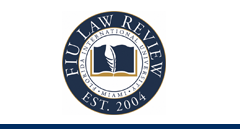Alternate Title
Save Your Rights: How Florida and Other States Have Targeted Voting Access Following the 2020 Election
Keywords
Immigration, Florida, Voting rights in Florida, Voter suppression, First Amendment violation, Pickering Test
Abstract
Following the 2020 general election, Florida’s Republican led legislature introduced Senate Bill 90 (“S.B. 90”), which seeks to put many restrictions on various aspects of the voting process. S.B. 90 limits ballot drop-off boxes, restricts mail-in voting, proscribes “line-warming,” increases registration difficulty, and expands identification requirements. Despite lauding Florida’s election as a gold standard for the rest of the country, Governor Ron DeSantis approved this bill in May of 2021, explaining that Florida should not become complacent despite its success. The Republican Governor approved this law against the backdrop of record voter turnout for Black and Latino voters and record mail-in voting by Democrats. Florida Rising Together, a grassroots organization working alongside other similar organizations, has filed suit against the State of Florida. Florida Rising Together’s suit alleges that this law intends to discriminate against Black, Latino, and elderly Florida voters by suppressing their vote. Florida Rising Together sought to introduce three professors from University of Florida as expert witnesses in their case against Florida. In response, the university—a public institution and organ of the Florida State government—barred all three professors from serving as expert witnesses for a party adverse to the State’s interests. While unprecedented, experts assert that the university’s conduct implicates violations of the professors’ First Amendment rights, despite any likelihood of a conflict of interest existing between them and their employer. By using the Pickering balancing test, the United States District Court for the Northern District of Florida should find that any conflict of interest the professors’ expert testimony may create in their relationship as state employees is far outweighed by the professors’ interest, as citizens, to comment upon matters of public concern—whether Florida’s newly implemented law violates the Fifteenth Amendment of the Constitution and the Voting Rights Act. Furthermore, Florida Rising Together (“Florida Rising”) should bring a Section 1985 claim against University of Florida officials for intimidating witnesses in a civil rights case.
Recommended Citation
Francisco Varona, Save Your Rights: How Florida and Other States Have Targeted Voting Access Following the 2020 Election, 17 FIU L. Rev. 887 (2023), https://doi.org/10.25148/lawrev.17.4.13.
Included in
Constitutional Law Commons, Courts Commons, Election Law Commons, Immigration Law Commons, Law and Society Commons, Legislation Commons





